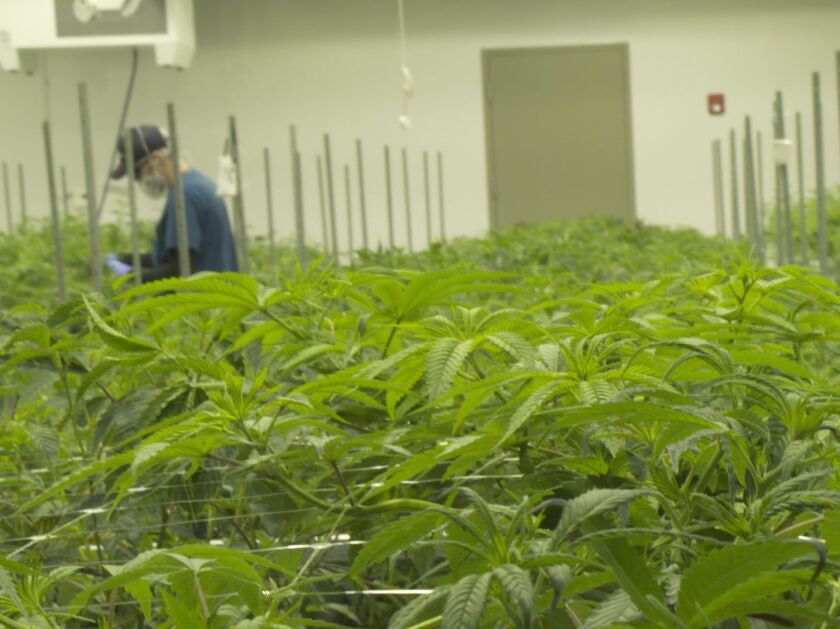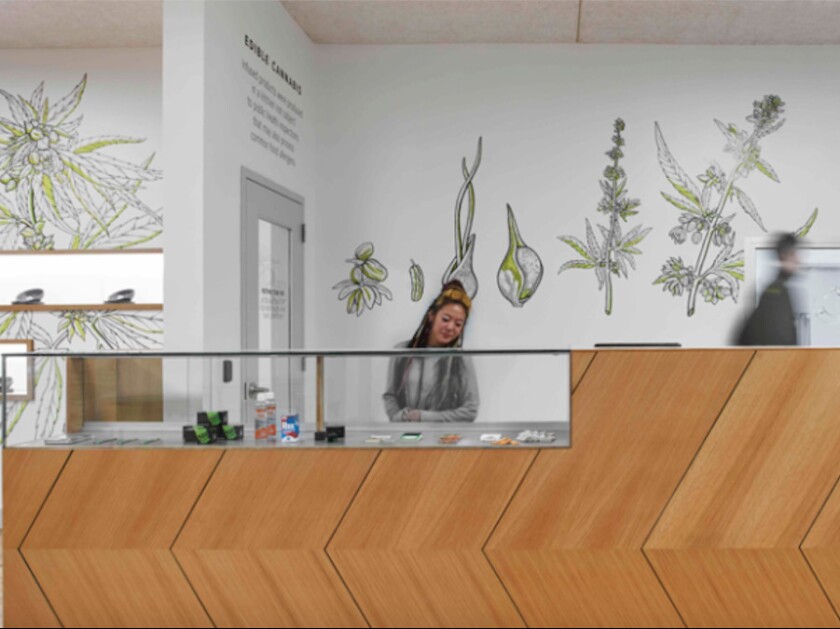Suffering from lingering pain related to a botched back surgery and a terminal illness that affects her lungs and heart, Debbie Keating walks with a cane, relies on an oxygen tank and takes a daily drug cocktail that includes powerful opioids like Dilaudid and morphine.
After being hospitalized last year for nearly two months, she applied for a medical cannabis license in late October hoping to find an alternative to the dangerous painkillers.
“I just want to find something right for me and lessen my opiate use,” said Debbie Keating, who lives in Elk Grove Village with her husband and caretaker, Kevin Keating.
Since applying for the license, her husband has repeatedly called the Illinois Department of Public Health seeking an update on the status of her application, to no avail.
“We’re kind of in limbo,” Kevin Keating said.
Looking for insight into the program, he eventually joined an online forum where other Illinoisans have reported similar issues. Some members of the group said they also had a hard time getting through to IDPH officials, and many reported waiting around 90 days to receive their medical cannabis cards.
“The wait time is just ridiculous,” Debbie Keating said. “I think people that are experiencing what I’m experiencing, they should go to the head of the line.”
Soon enough, medical pot applicants like Debbie Keating will be able to do just that.
In the coming weeks, opioid patients will be offered temporary, almost immediate access to medical marijuana under the Alternative to Opioids Act, a landmark piece of legislation signed last August by outgoing Gov. Bruce Rauner. In addition, all other prospective patients will be allowed to buy medical-grade pot products while their applications are being processed — a move that’s specifically aimed at reducing the months-long wait period.
Access for opioid patients and those seeking provisional coverage will open when MicroPact, a Virginia-based contractor, completes new software that will interact with the state’s existing cannabis monitoring systems, according to IDPH spokeswoman Melaney Arnold. The new system should be up and running as early as Jan. 31, but MicroPact doesn’t have a strict “go-live” date, Arnold noted.
Opioid patients will need only obtain a doctor’s note verifying their condition before they can apply for a 90-day medical card through the Opioid Alternative Pilot Program, an offshoot of the state’s medical pot program. Those patients will then “be registered, either online by establishing an account, or at a dispensary, and have immediate access to medical cannabis,” Arnold said. After 90 days, a doctor can then renew a patient’s card.
The changes will almost certainly increase the medical cannabis program’s patient count, which has grown substantially since post-traumatic stress disorder was added as a qualifying condition in 2016. Of the 52,365 medical cannabis applications the IDPH has approved in more than four years, 22,452 were accepted in 2018.
Arnold said it was unclear how many new applicants were expected after the expansion. Nevertheless, some of the state’s top cannabis companies are already preparing for an influx of patients.
Green Thumb Industries, or GTI, has increased production by 60 percent at its two Illinois grow facilities, and Cresco Labs is in the process of tripling the overall amount of pot its three statewide cultivation centers can produce.
GTI and Cresco — River North-based competitors that have operations in multiple states and are traded publicly in Canada — each run five Illinois dispensaries that are also prepping for the changes.
“We are adjusting the size of our waiting areas, implementing new technology that will connect to state computers and training our staff on the rules and regulations so we’ll be prepared for that first patient that walks through the door,” said Jason Erkes, Cresco’s chief communications officer.
GTI’s dispensaries are also training its existing employees, as well as hiring new workers, according to Jennifer Dooley, the company’s chief strategy officer.
Abigail Watkins, director of marketing for Dispensary 33 in Uptown, said state officials led a web-based training session Jan. 8 that will “play a big role in providing information on the enrollment process, implementation timing and program details.”
According to an annual IDPH report issued last September, Dispensary 33 served the most medical cannabis patients in the state. The pot shop has since been redesigned to accommodate twice as many people, Watkins said.
“We’re extremely confident that, no mater the increased influx, we’ll be able to continue to provide the same quality of experience for opioid patients as our medical cannabis patients have received for the past three years,” Watkins added.









